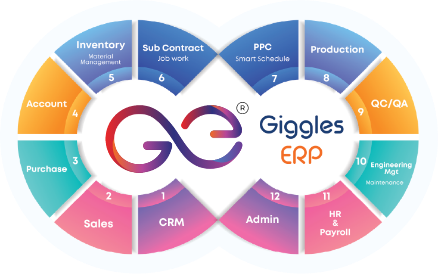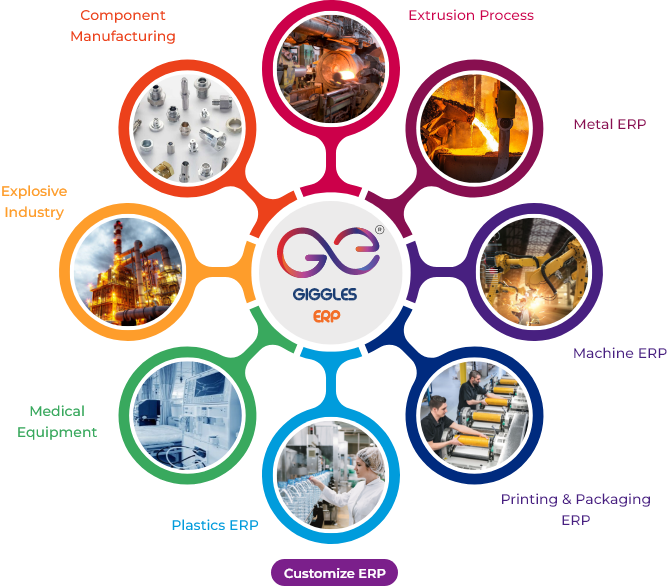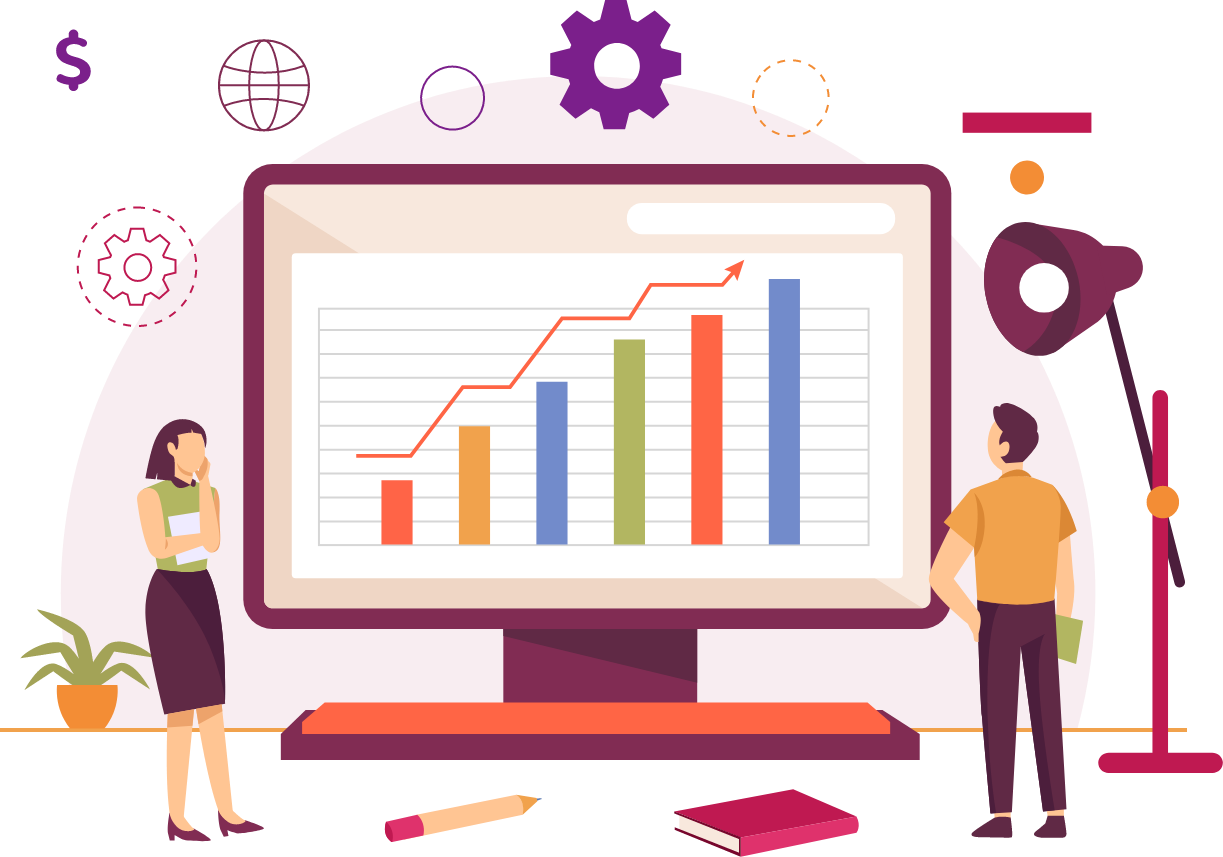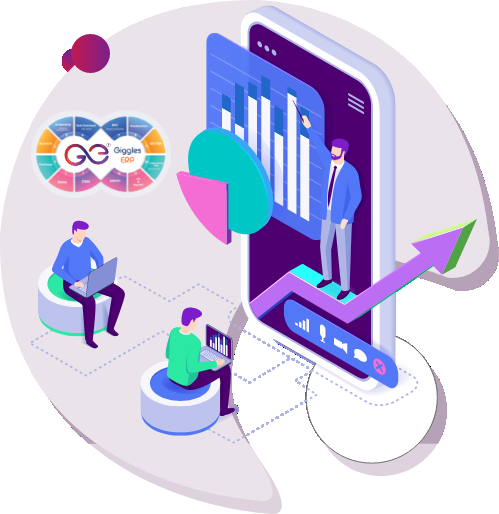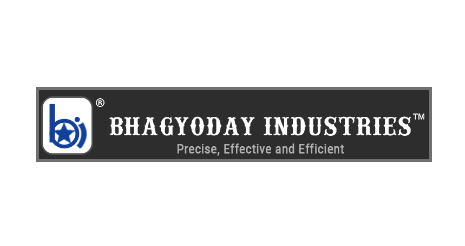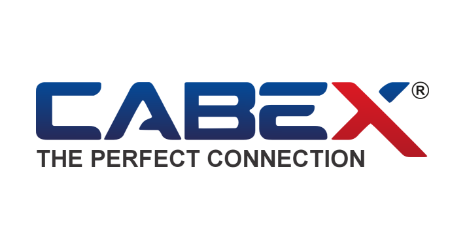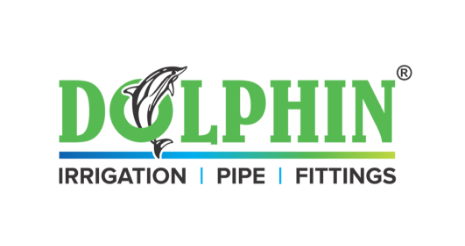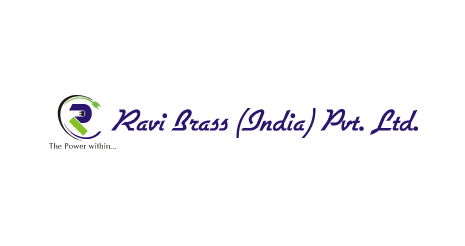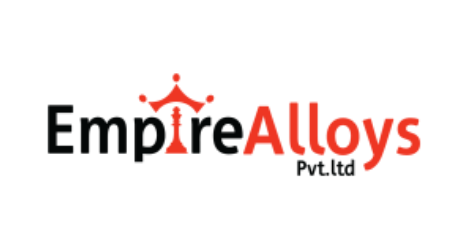About Us
Who We Are
Giggles ERP, powered by Techno Infonet, is a leading ERP software solution designed specifically for industries such as brass metals, machine tools, foundry, casting, extrusion, Forging, engineering, mining, mechanical contracting, healthcare equipment, plastic, and construction. With a strong focus on providing customizable and user-friendly ERP solutions, we help businesses streamline their operations, enhance productivity, and achieve sustainable growth.
Since our inception, we have been committed to empowering businesses with cutting-edge technology that simplifies complex business processes. Our ERP solutions are crafted with deep industry insights to meet the unique needs of various manufacturing and service-based industries. Till 2025 we already Provided 11+ Different Industries Specific Solution thorough Giggles ERP as mentioned here.
Our Core Values
Innovation: Continuously improving and innovating to offer the best ERP solutions.
Customer Focus: Prioritizing the needs and success of our clients.
Integrity: Maintaining transparency and ethical practices in all our dealings.
Collaboration: Building strong partnerships with clients to achieve shared goals.

